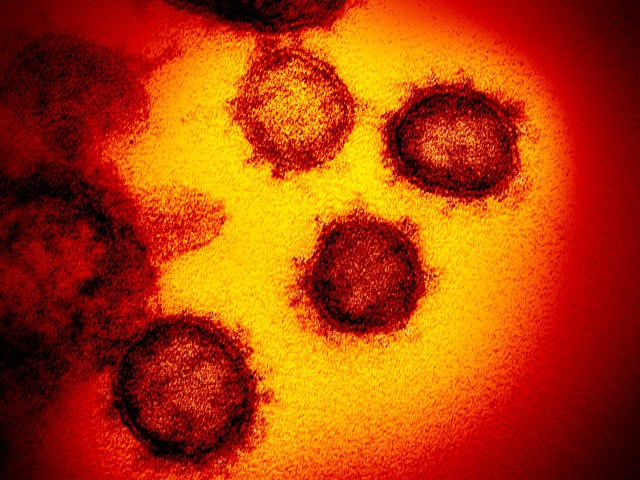The worldwide effort to find a way to halt the spread of the coronavirus is under way and Charles Chiu at the University of California, San Francisco, may play a vital role in understanding the virus so that it can be controlled and even eradicated.
A professor of Laboratory Medicine, Division of Infectious Diseases, Chiu’s work includes tracking mutations and the spread of infectious diseases and his efforts are now in high gear at his state of the art laboratory.
“We will be running this 24 hours a day,” Chiu said in a San Francisco Chronicle report. “I see no reason why we can’t sequence the genomes of every case.”
The Chronicle detailed this part of the battle against the virus:
The new NextSeq 550 sequencing machine at UCSF’s clinical lab on Berry Street looks like a microwave with a computer keyboard, but to microbiologist Charles Chiu, it is the key to California’s fight against the deadliest, most invasive virus to strike humanity in decades.
Chiu, 48, is director of the UCSF-Abbott Viral Diagnostics and Discovery Center and it was one of the first labs to sequence strains of the H1N1 influenza virus, which was connected to the 1918 Spanish flu pandemic, according to the Chronicle. The report added that Chiu has also sequenced 2,000 unusual strains of HIV and strains of the Zika virus.
Our genomic survey of #SARSCoV2 in northern CA shows no predominant SARS-CoV-2 strain circulating (yet) among the community, unlike in Washington State or elsewhere – supports extreme social distancing and travel restrictions to minimize further spread
— Charles Chiu (@cychiu98) March 21, 2020
During this pandemic, Chiu has analyzed nine samples from more than 24 people who tested positive for the coronavirus and who were passengers on the Grand Princess cruise ship.
“Those sequences belong in the same cluster as the infection in Washington state,” Chiu said. “They really suggest a link between Washington state and California.”
The Chronicle report explained Chiu’s work:
Chiu said tracking the spread of the virus through genetics is possible because coronaviruses are known to have one to two mutations per month, allowing genomic sequencing to track a particular strain back to its origin.
The rate of mutation in coronaviruses is much slower than it is with the influenza virus, which averages about eight to 10 mutations per month. The mutations are why it is impossible for humans to become immune to the flu, which comes back in a new form every year.
Chiu used genomic sequencing to identify California’s first case of community transmission, which was a Solano County, California, woman who was infected by an unknown source. She and a Santa Clara County, California, woman who was subsequently diagnosed had not traveled any place where the coronavirus was known to have spread, and did not have contact with anyone who was infected.
The Solano County woman transmitted the disease to two health care workers. Chiu discovered that the three of them had a strain that was different from the others he has documented. He speculates that it originated in China and was transmitted to just her by a traveler.
“Perhaps by identifying that patient (and isolating her), we might have been able to stop that strain from multiplying,” Chiu said.
“A separate strain seen nowhere else in the United States was also found in a San Benito County in a person who returned from a visit to China,” the Chronicle reported.
“It’s quite different from what is going on in Washington state, where all the cases are related to that single strain,” Chiu said, adding that about 20 genomes have been sequenced in that state, all of which originated in China.
Chui said he will analyze 30 positive samples already in the lab and then more than 200 more he will be getting from Santa Clara County on Monday, which will “dramatically increase” the amount of genetic knowledge about coronavirus.
“Who knows what it will look like when we get the 200 samples,” he said. “We’re basically scrambling to keep up. The situation changes every day.”
According to Johns Hopkins University and Medicine, 316,652 coronavirus cases have been confirmed worldwide, 13,598 have died and 94,176 have recovered.
In the United States 26,997 cases have been confirmed, 346 have died, and 176 have recovered.
Follow Penny Starr on Twitter

COMMENTS
Please let us know if you're having issues with commenting.